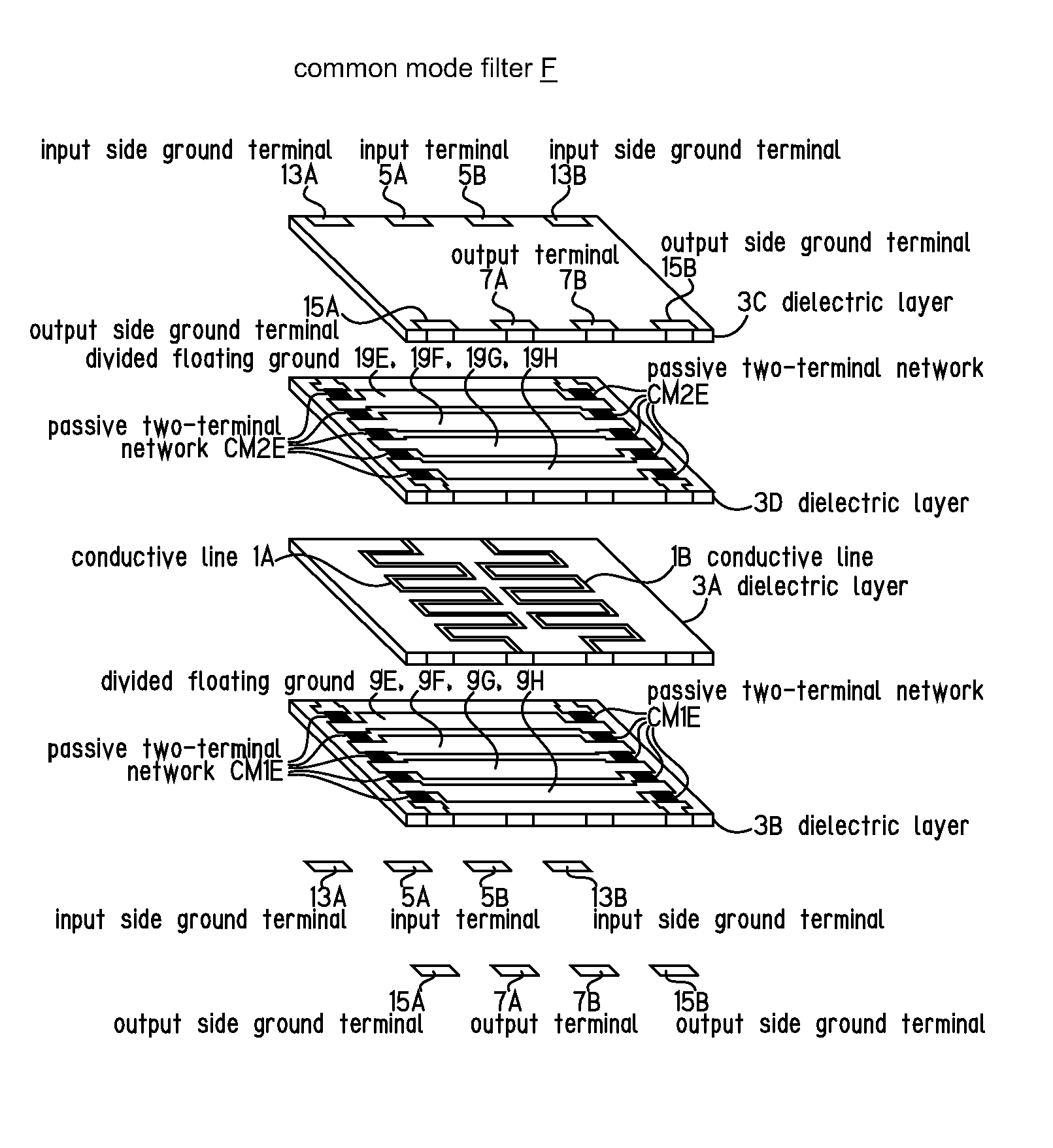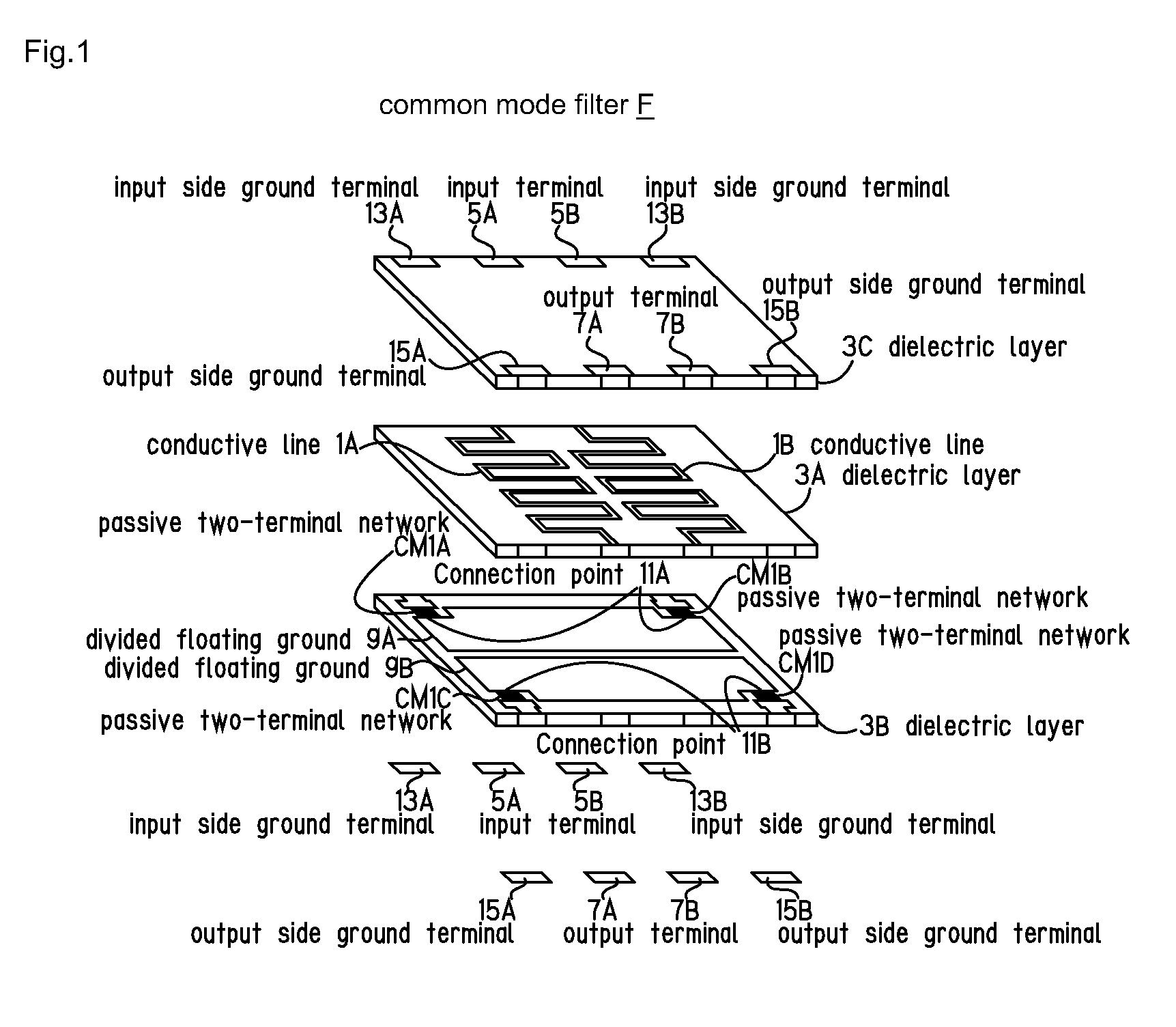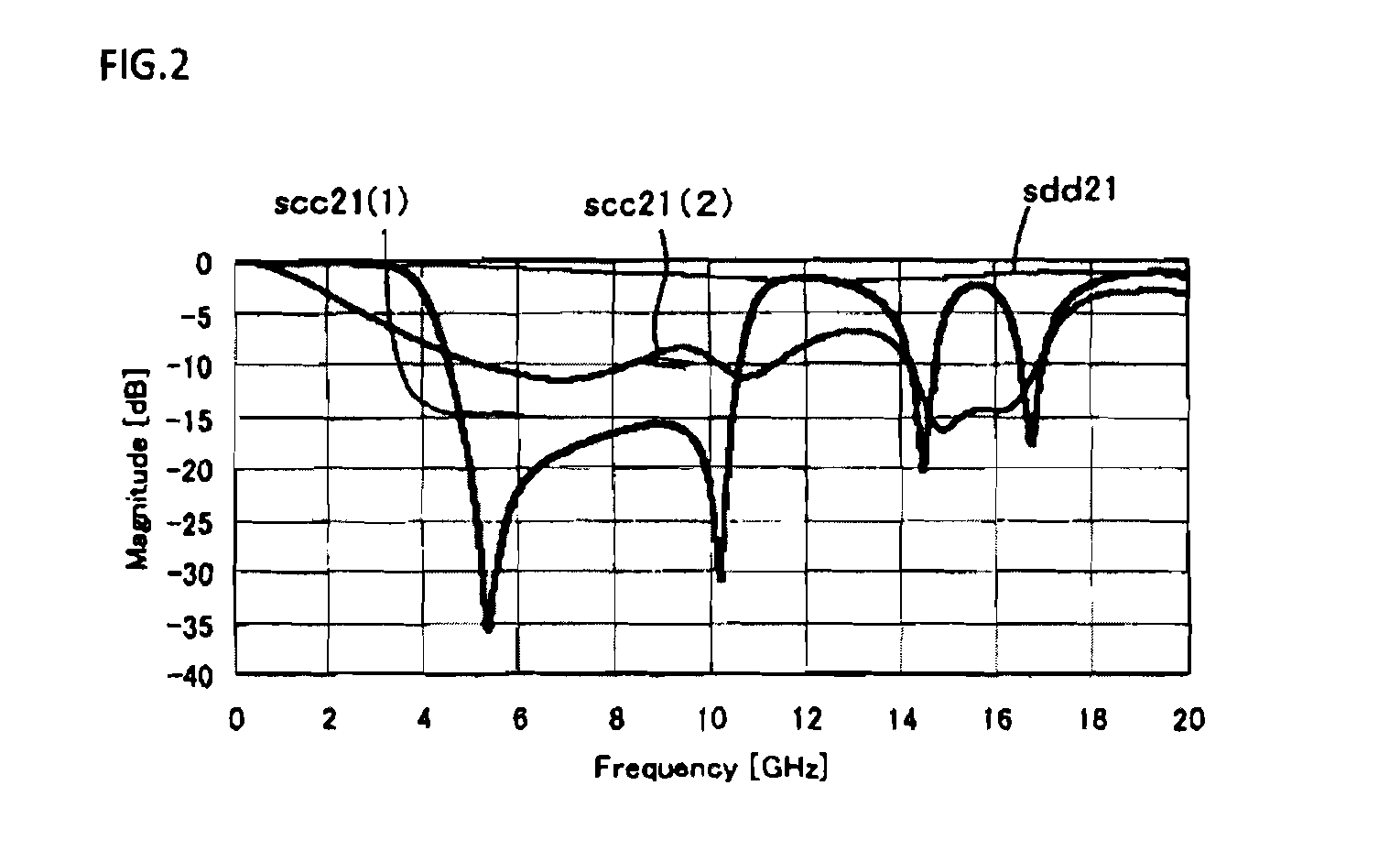Common mode filter
a filter and common mode technology, applied in the direction of waveguides, line-transmission details, waveguide type devices, etc., can solve the problems of difficult signal passing, high impedance of two conducting wires, easy noise influence of transmission, etc., and achieve the effect of simplifying the structur
- Summary
- Abstract
- Description
- Claims
- Application Information
AI Technical Summary
Benefits of technology
Problems solved by technology
Method used
Image
Examples
Embodiment Construction
[0071]Preferred embodiments of the present invention will be described hereafter, with reference to the drawings.
[0072]FIG. 1 is an exploded perspective view showing a basic structure of a common mode filter F according to the present invention.
[0073]In FIG. 1, a pair of rectangular meander conductive lines 1A and 1B are farmed between both opposite edges of the dielectric layer 3A on one surface (on an upper surface in FIG. 1) of a rectangular dielectric layer 3A which is composed of a dielectric substrate such as baked ceramics, by a conventionally known printing method. The conductive lines 1A and 1B are connected to input terminals 5A and 5B, and output terminals 7A and 7B formed on different opposite edges of the dielectric layer 3A. In the figure, such input terminals 5A, 5B, and output terminals 7A, 7B are shown in parts different from the part of the dielectric layer 3A, for convenience.
[0074]The conductive lines 1A, 1B, and the input / output terminals 5A, 5B, 7A, 7B are arra...
PUM
| Property | Measurement | Unit |
|---|---|---|
| width | aaaaa | aaaaa |
| frequency | aaaaa | aaaaa |
| resistance | aaaaa | aaaaa |
Abstract
Description
Claims
Application Information
 Login to View More
Login to View More - R&D
- Intellectual Property
- Life Sciences
- Materials
- Tech Scout
- Unparalleled Data Quality
- Higher Quality Content
- 60% Fewer Hallucinations
Browse by: Latest US Patents, China's latest patents, Technical Efficacy Thesaurus, Application Domain, Technology Topic, Popular Technical Reports.
© 2025 PatSnap. All rights reserved.Legal|Privacy policy|Modern Slavery Act Transparency Statement|Sitemap|About US| Contact US: help@patsnap.com



